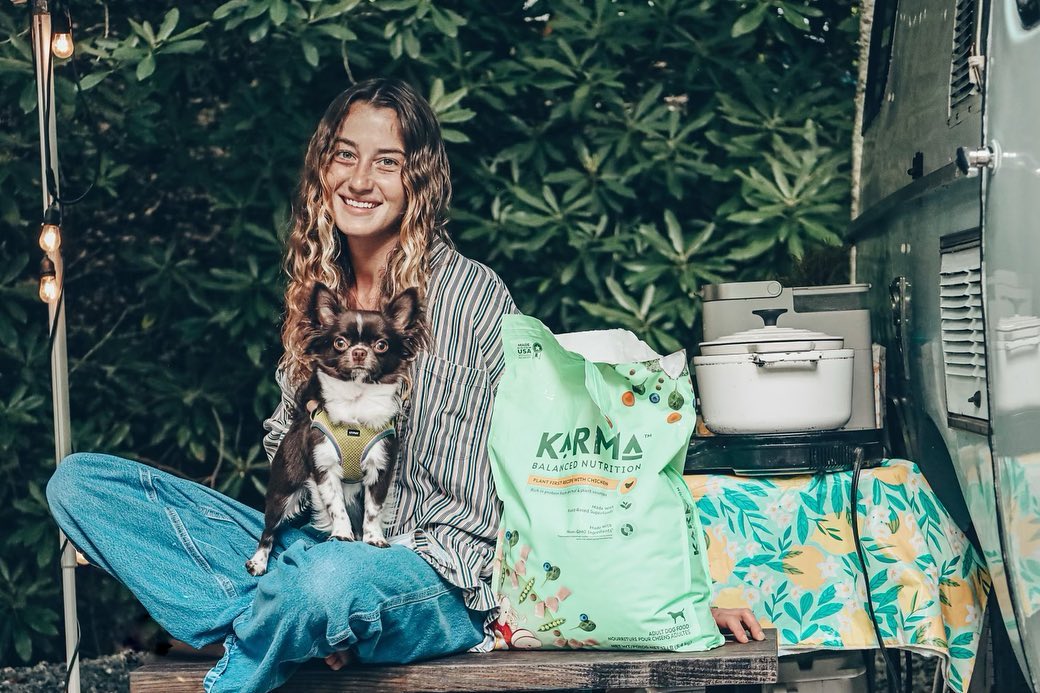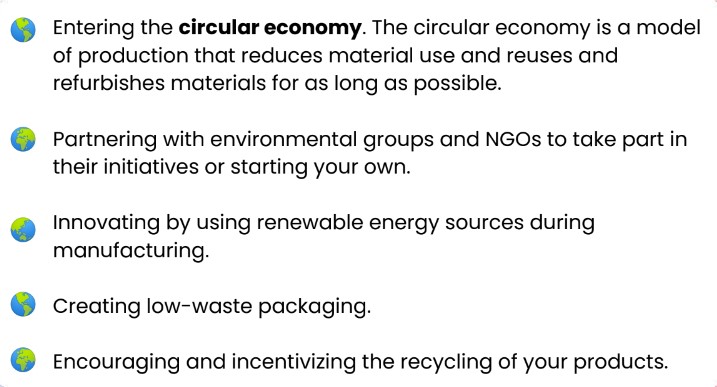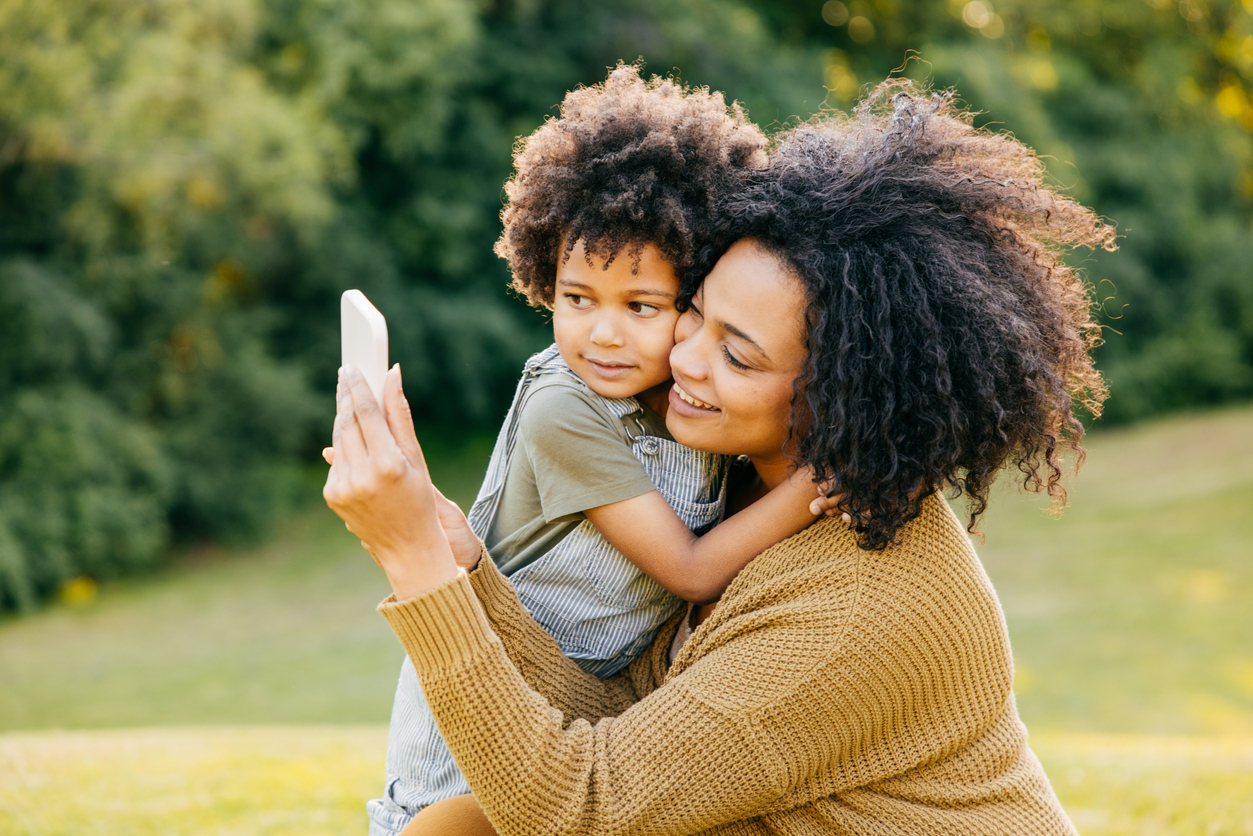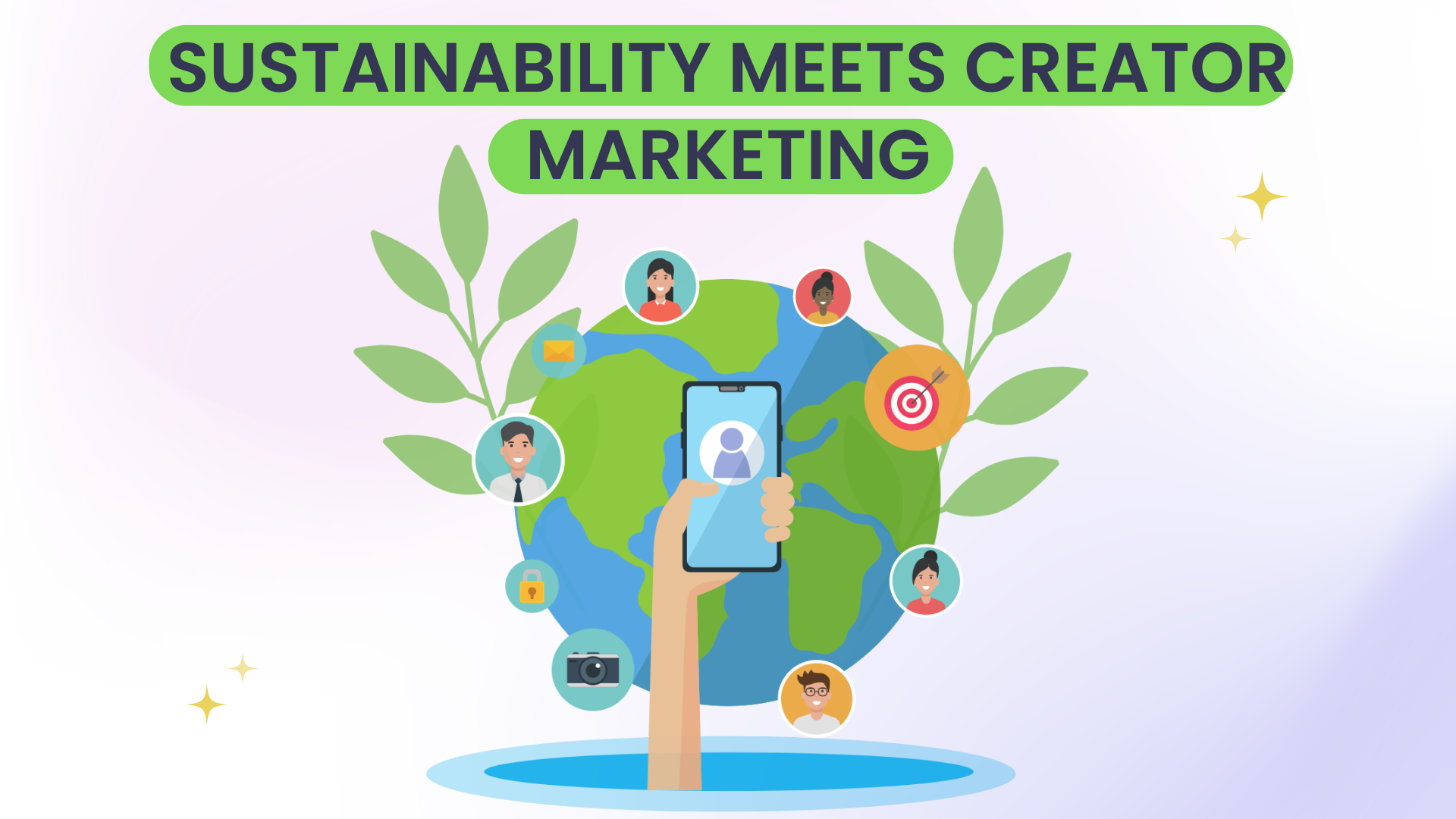Our planet is deteriorating; we see it every day, in the news, on social media, and in our own lives when we step outside.
When we think of the beginning of environmental activism and awareness, we think of the voices of the 60s and beyond – environmental advocacy even traces back to the 18th century. Today, modern environmental advocacy is similar and different in many ways. To start, it’s much more mainstream and intertwined within our minds and actions, especially as consumers.
Enter sustainability. Consumers’ habits have significantly shifted to favor sustainability in the past few years. Our planet is damaged beyond repair, and people, as consumers, have grown highly aware of this. Environmental concerns have shifted from reversing damage (as it is impossible), to creating a more sustainable future.
Cross-generational Concern

@partyof4sometimes2 x Karma
Sustainability is a high priority among younger generations, with Gen Z being especially vocal on the subject. Seventy-five percent of Gen Z think buying sustainable products is more important than buying based on brand names. Additionally, 75% of millennials also consider sustainability when making purchases.
However, younger generations aren’t the only ones with sustainability on their minds. This concern is cross-generational. In 2021, 67% of Gen X and 45% of Boomers preferred to buy from sustainable brands.
Three out of five consumers stated that sustainable and socially responsible products made up at least half of their last purchases. And many consumers, of any age, are willing to switch brands that violate their values.
The Institute for Business Value found that 93% of global consumers’ views on sustainability have been influenced since the pandemic.
As of 2022, 51% of consumers state that sustainability is even more important today than it was a year ago. In those past 12 months, 49% of consumers said they pay significantly more (59% more) for branded products as sustainable and socially responsible.
What exactly is sustainability?

@hiitaylorblake x Karma
Sustainability is the practice of using natural resources responsibly to support life in the present and the future. It encapsulates environmental, social, and economic preservation and efforts.
Think climate change and air pollution. Think ocean pollution and drinking water contamination. Think excessive waste and overflowing landfills. Think environmental racism. Think biodiversity loss.
Modern consumers believe it is brands’ responsibility to be environmentally conscious, just as much as it is the government’s responsibility. So as a brand, you need to deepen your sustainability efforts.
How can your brand be sustainable?
Sustainability can be applied to all brand verticals. Beauty and retail products, consumer packaged goods, automotive companies, and more all have contributions for or against the planet.
Fifty-three percent of company executives state that sustainability will be a top priority for them in the next three years, and 39% say it is a top priority today. However, of the 86% of companies with a sustainability strategy, only 35% have acted on it.
Your brand may or may not be making strides toward being sustainable already. Efforts to be sustainable begin internally. The way you package and ship products, how they are manufactured, and how you take responsibility for the product after use are all a part of the journey.
You can start becoming more sustainable by considering:

Many brands have already begun taking strong sustainability initiatives:
- Patagonia has been at the forefront of sustainability since before it was trendy. It takes part in the circular economy by using sustainable materials to make its products in the circular economy. They give their customers the option to repair their clothing and encourage them to recycle old products.
- H&M has innovated its fabric recycling technology to recycle cotton and polyester efficiently. The brand encourages its customers to drop old clothing in boxes located in-store for them to be recycled.
- Adidas has created an environmental program called the Green Company to minimize resource consumption and reduce waste. They are making efforts to use recycled materials and eliminate their plastic use, aiming for 9 out of 10 of their products to include sustainable materials by 2025. According to the Green Company, Adidas reduced carbon emissions by 55%, water consumption by 48%, and other waste by 50%.
- Coca-Cola has taken responsibility for having a place in contributing to plastic waste and is aiming to fix it. They have taken initiatives such as #WorldWithoutWaste and made 90% of their packaging recyclable globally and are aiming to make 100% recyclable by 2025.
Becoming more sustainable builds trust among consumers. Consumers will be more likely to trust your brand and purchase your products if you make an honest effort to be sustainable. It also has long-term value for your brand. Nearly two-thirds of personal investors believe that ROI in sustainable companies will be higher than other companies in the next five years.
Beware of Greenwashing! Greenwashing is giving consumers misinformation about your product and portraying your brand as sustainable for public image’s sake.
@krysgierlet me know if you’re into this series? Idk I think I kinda am 😏 (PS this is NOT sponsored content in fact they have no idea I exist haha) #dropps #sustainableswaps #sustainability #sustainableorgreenwashing #greenwashing♬ Blue Moon – Billie Holiday
How can creators enhance your brand’s sustainability efforts and campaigns?
Consumers who are sustainability-forward are 67% more likely to be digitally engaged. And where can you reach digitally engaged people naturally? Through creators on social media platforms.
Creators reinforce transparency. In general, it is essential to be transparent with consumers during sustainability campaigns. Openly communicating your progress and goals reassures consumers that you’re honest and serious about your efforts. Creators can help you to share your commitments in a more human and personal way.
 Creators build trust. Ninety-two percent of people trust a creator’s reviews over classic ads and celebrity endorsements. Environmentally conscious creators are highly authentic because their followers know they are dedicated to sustainability. For this reason, they already have reliability and credibility in their follower’s eyes. Not to mention, celebrities often find themselves in hot water for being environmentally irresponsible.
Creators build trust. Ninety-two percent of people trust a creator’s reviews over classic ads and celebrity endorsements. Environmentally conscious creators are highly authentic because their followers know they are dedicated to sustainability. For this reason, they already have reliability and credibility in their follower’s eyes. Not to mention, celebrities often find themselves in hot water for being environmentally irresponsible.
Creators fit into sustainability TikTok niches. There are creators and groups of people on all social platforms dedicated to all types of sustainability. Whether it’s sustainable fashion, zero-waste lifestyle, plant-based eating, or climate change advocates, there is a place for every pillar of environmentalism on social media. For example, there are many TikTok communities devoted to sustainability: #zerowaste has almost 3B views, #sustainablefashion has 3.1B, #ecofriendlyproducts has over 404M views, #plantbased has over 5B views, and #climatechange over 3B views.
Creators educate audiences. Creators can break down processes and initiatives your company is taking in a digestible way to audiences. They provide a more authentic influential marketing tone than a statement a company would make itself and can highlight important details. They can also direct large audiences to links and landing pages with more information.
Be cautious of virtue signaling from creators. Sometimes creators can share positive environmental views for a good public image but do not actually practice sustainability. It may be challenging to identify when a creator is doing this. Taking note of creators with long track records of environmental friendliness and high levels of trust from their followers will aid you in avoiding partnering with a creator who is not dedicated and will upset audiences.
Make Your Sustainability Campaign Unforgettable
 Have a sense of a social mission. Yes, sustainability is a must in many consumers’ eyes, but don’t lean into sustainability to simply hop on a trend. Focus on sustainability to create positive change for the planet and focus on sustainability to help consumers help the earth and future generations.
Have a sense of a social mission. Yes, sustainability is a must in many consumers’ eyes, but don’t lean into sustainability to simply hop on a trend. Focus on sustainability to create positive change for the planet and focus on sustainability to help consumers help the earth and future generations.

Be honest and make a real effort. As we learned, greenwashing is a no-no; if consumers catch you, they won’t be so forgiving. It can be challenging to alter your supply chain and make other internal changes, but taking small steps toward positive change is the direction you should strive for.

Educate yourselves and your consumers. Educating yourself will help you make smarter decisions in your efforts, and educating your audience will go a long way in assisting them to trust you. In fact, 65% of people who are highly informed about sustainability trust corporate statements, while only 27% of those who feel uninformed trust corporate statements.

Lean into storytelling. Many people worldwide – including creators make big and small everyday efforts to help the planet. Give them a spotlight to share their successes with others. Giving them a voice allows you to start meaningful conversations, make connections, and raise awareness for your brand.

Use A Creator Listening Tool. Using a creator listening tool, like Go Prism. It will assist you in determining what the most popular hashtags are related to sustainability, when they are most popular, who the most popular creators in the different niches are, and so much more. For example, #sustainability is the most used on Earth Day; discover what people are talking about and how you can fit into the niche most naturally.
Get inspired to think green from these campaigns:
Once Upon A Child
Once Upon A Child’s campaign took to Instagram to let their audiences know how their gently used options are a sustainable and budget-friendly must for the holiday season.
View this post on Instagram
Karma
Karma pet food launched a stunning nature-filled campaign to educate audiences about their zero waste manufacturing sites, sustainably sourced products, and recyclable packaging. And, of course, all while featuring adorable pets.
View this post on Instagram
View this post on Instagram
CO2COA
CO2COA demonstrated to their audience how self-care and planet love go hand-in-hand in their Instagram and TikTok campaign. The creators explained how CO2COA is vegan friendly, has paper-based packaging, and uses Rainforest Alliance certified cocoa. They also gave their audiences’ insight to their unwinding routines and how they snack sustainably when enjoying nature.
@arina.negishi#Ad Unwind with me & #CO2COA 🍫🕯✨ Try it for yourself – check out the link in my bio! #MarsWrigley #unwindwithme #nightroutine♬ Sky Aesthetic – Tollan Kim
@jessicarosepnw#AD CO2COA is the silkiest chocolate made with animal-free dairy and is lactose-free! So excited that I found a chocolate that’s delicious and planet friendly. Try it for yourself with the link in my bio! #Marswrigley #CO2COA♬ Bonfire or campfire 01(1165157) – CanonCable
As a brand, being sustainable goes beyond words and green packaging. It’s about making honest efforts and commitments and communicating those efforts properly.
Open Influence is a creator marketing agency that helps you connect with creators and build valuable relationships with your audiences. Our specialty is helping brands keep the human touch, which is exactly what every sustainability campaign needs.
Reach out to us today to get started on your next campaign!






